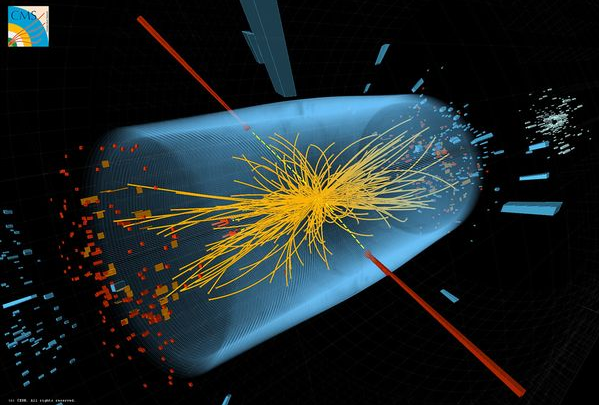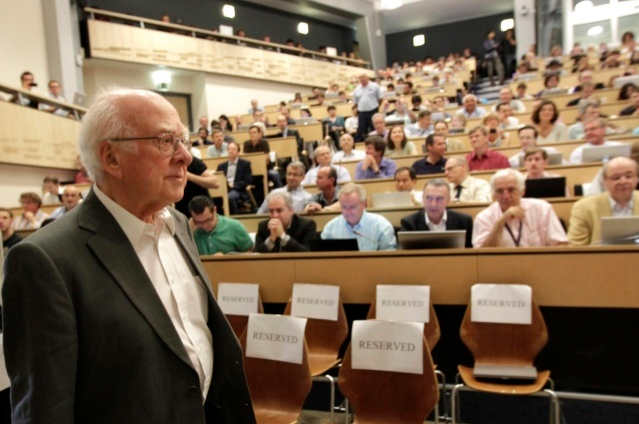
Are we closer to explaining the origins of life? Scientists believe that they are closer to the answer with the European Organization for Nuclear Research’s (CERN) apparent discovery of the highly conjectured Higgs boson, a subatomic particle named for its hypothesizer Peter Higgs.
According to reports, this particular revelation will unlock the mysteries of nature, furthering the study of physics and accelerating research into what is commonly known as dark matter.
“We have reached a milestone in our understanding of nature,” CERN director general Rolf Heuer told a gathering of scientists and the world’s media near Geneva on Wednesday.
According to Reuters, two independent studies of data produced by smashing proton particles together at CERN’s Large Hadron Collider produced a convergent near-certainty on the existence of the new particle — the God particle, which is what it has been named by researchers who feel it can explain how the universe came to order after The Big Bang.

Higgs, 83, was understandably emotional at CERN’s conference, telling Reuters that this discovery was confirmation of all his wok he put in over four decades ago.
“For physics, in one way, it is the end of an era in that it completes the Standard Model,” he said of the basic theory physicists currently use to describe what they understand so far of a cosmos built from 12 fundamental particles and four forces.
Scientists seem overzealous with the findings to the point to where they are evidently ready bypass the necessary process to officially rule out any other particles. Although CERN have definitively found a boson, it is not certain that it is Higgs. But, as mentioned before, some scientists don’t feel that CERN’s sedulous adherence to the science community’s stringent five sigma rule is warranted when it is most likely to turn out to be the famed Higgs boson.
Five sigma, a measure of probability reflecting a less than one in a million chance of a fluke in the data, is a widely accepted standard for scientists to agree the particle exists.
The crux of the excitement points to the fact that regardless of whether or not it’s a Higgs boson or a completely different subatomic particle, which would force a complete overhaul of previous scientific theory, we have now ushered in a new era of scientific exploration.







“If it looks like a duck and quacks like a duck, it’s probably at least a bird.” – Frank Wilczek
Great post- I don’t think that most of the world is ready to appreciate the magnitude of the discussion of these findings. As a person who grew up saying ‘why’ a lot I’m really excited to see what’s next.